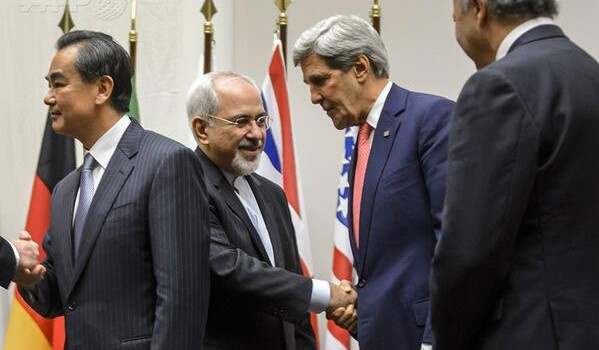A Look at Iran-US Relations

For almost thirty-five years, the challenge between Iran and the US has passed through different stages; from periods of hostility to dialogue and interaction, from being named as a member of the axis of evil to accepting Iran’s regional power. What is important is that the US has not yet been able to reach a comprehensive solution inside and outside the country for complete dialogue with Iran. The double standards seen in the US’ words and behaviors have hindered the success of these talks. A review of the behavior of the Republicans or the Democrats teaches us, Iranians, a great lesson: the US does not have an accurate understanding of the power of Iran, of its government, and of its people. Their lack of knowledge is quite obvious. One day Iran is linked with Israel’s interests, another day with the Arabs’ interpretation or the measures taken by the Iranian opposition. All of these misinterpretations have prevented the US from having a realistic comprehension of Iran’s identity.
Now, after several decades, the two sides have met and conferred with each other in Oman, Geneva, Vienna and other parts of the world during the past few years.
If we intend to look at the negotiations between Iran and the US in Geneva at the level of deputy ministers with this background, we cannot be optimistic about the outcome of the present situation.
The exchange of ideas is good but will not necessarily lead to a solution. A correct policy needs a high level of determination wherein a distant horizon can be seen. The western party never considers a win-win policy. Using threats can never be constructive. If they intend to find a solution to the nuclear crisis, determination is the best logical policy with regard to a nation that has accepted all the costs of independence.
The Geneva negotiations are another test to verify the US. There was a time when the US created the greatest number of obstacles in reaching a comprehensive solution which would satisfy both sides. Now the time has come for both sides to take the first positive step so that it would leave a desirable, and not undesirable, impact on the minds of the Iranians.
So far we have not seen a logical strategy being pursued by the P5+1. What can be seen is the explicit preventive strategy accompanied with threats, cooperation and sanctions.
Nuclear negotiation is an important step to test the other side. The question which remains in the mind of the respected reader is, why should the western countries and the US be satisfied with a win-win game?
A study of the developments of the region shows that one cannot easily ignore the geopolitical and geostrategic situation of a country like Iran. It is not possible for the security belt of the region to succeed without Iran’s cooperation.
During the past decade, two regimes have collapsed. Everyone knows that if Iran was not involved in Iraq and Afghanistan, these two countries would have now been transformed into scenes of bloodbath for the foreign forces.
The crisis of terrorism has engulfed the region and has led to sinister acts against the security of the people of the world. The cooperation between Iran, the US and Europe could uproot terrorism in its real sense. A look at Iran’s regional power shows that all western camps need to interact and cooperate with Iran. This cooperation could only be successful when the western countries recognize Iran’s legitimate right to peaceful nuclear technology.
Iran’s representatives in these negotiations are representatives of the government and the people of Iran and are trusted by the Supreme Leader. All of the different political groups and parties trust them. They are well aware of how to protect the people’s rights; rights which can never be ignored and are rooted in the national identity of the people of Iran.

